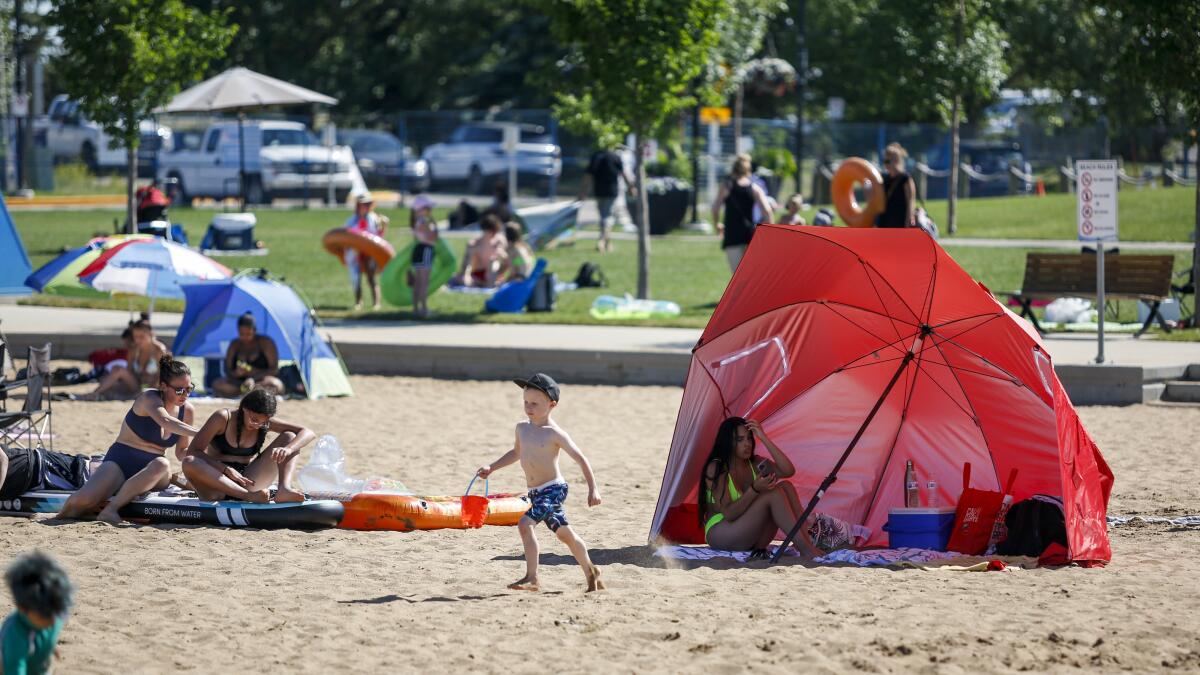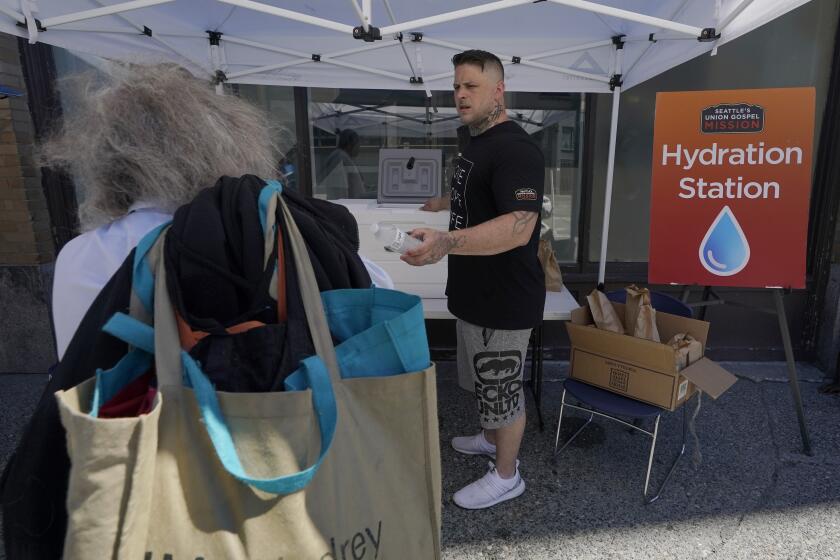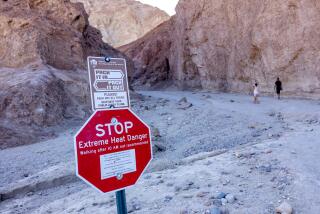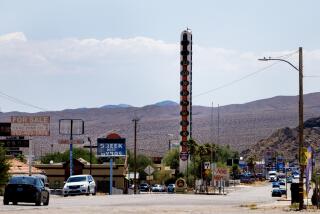Over 100 deaths may be tied to historic Northwest heat wave

- Share via
SALEM, Ore. — The grim toll of the historic heat wave in the Pacific Northwest became more apparent as authorities in Canada, Washington state and Oregon said Wednesday that they were investigating more than 100 deaths likely caused by scorching temperatures that shattered all-time records.
Oregon health officials said more than 60 deaths have been tied to the heat, with the state’s largest county, Multnomah, blaming the weather for 45 deaths since the heat wave began Friday.
In Vancouver, in Canada’s British Columbia province, police said they had responded to more than 65 sudden deaths since Friday. Washington state authorities had linked more than half a dozen deaths to the heat, but that number was likely to rise.
“Vancouver has never experienced heat like this, and sadly dozens of people are dying because of it,” Vancouver Police Sgt. Steve Addison said in a statement.
The heat wave was caused by what meteorologists described as a dome of high pressure over the Northwest and worsened by human-caused climate change, which is making such extreme weather events more likely and more intense. Seattle, Portland, Ore., and many other cities broke all-time heat records, with temperatures in some places reaching above 115 degrees.
.
The record-breaking heat baking the West Coast is another painful sign that climate change is here, and we have to adapt.
Although the temperatures had fallen considerably in western Washington, Oregon and British Columbia by Wednesday, interior regions were still sweating through triple-digit temperatures as the weather system moved east into the intermountain West and the Plains.
Amid the dangerous heat and drought gripping the American West, crews were closely monitoring wildfires that can explode in the extreme weather.
The Environment Canada government agency issued heat warnings Wednesday for southern Alberta and Saskatchewan provinces. Heat warnings also were in place for parts of Washington, Oregon, Idaho and Montana.
In Alberta, “a prolonged, dangerous and historic heat wave will persist through this week,” Environment Canada said in a release.
The high temperatures or humidity conditions also were expected to pose an elevated risk of heatstroke or heat exhaustion.
British Columbia’s chief coroner, Lisa Lapointe, said her office would normally receive about 130 death reports over a four-day period. At least 233 deaths were reported from Friday to Monday afternoon, she said, and coroners are determining whether the record-breaking heat played a role. Like Seattle, many homes in Vancouver don’t have air conditioning.
In a statement, Oregon’s Multnomah County medical examiner blamed 45 heat deaths there on hyperthermia, an abnormally high body temperature caused by a failure of the body to deal with heat. The victims ranged in age from 44 to 97.
The county, which includes Portland, said that between 2017 and 2019, there were only 12 hyperthermia deaths in all of Oregon.
“This was a true health crisis that has underscored how deadly an extreme heat wave can be, especially to otherwise vulnerable people,’’ Dr. Jennifer Vines, the county’s health officer, said in a statement.
The King County medical examiner’s office, which covers an area including Seattle, said at least two people died of hyperthermia. In neighboring Snohomish County, three men — ages 51, 75 and 77 — died after experiencing heatstroke in their homes, the medical examiner’s office told the Daily Herald in Everett, Wash., on Tuesday.
In eastern Washington, the Spokane Fire Department found two people dead in an apartment building Wednesday who had been suffering symptoms of heat-related stress, TV station KREM reported.
The heat led a power company in Spokane to impose rolling blackouts because of the strain on the electrical grid. Avista Utilities says it’s trying to limit outages to one hour per customer.
Heather Rosentrater, an Avista vice president for energy delivery, said the outages were a distribution problem and did not stem from a lack of electricity in the system.
Renee Swecker, 66, of Clayton, Wash., visited a splash pad in downtown Spokane’s Riverfront Park with her grandchildren Wednesday, saying they “are going everywhere where there is water.”
“I’m praying for rain every day,” Swecker said.
More to Read
Sign up for Essential California
The most important California stories and recommendations in your inbox every morning.
You may occasionally receive promotional content from the Los Angeles Times.











